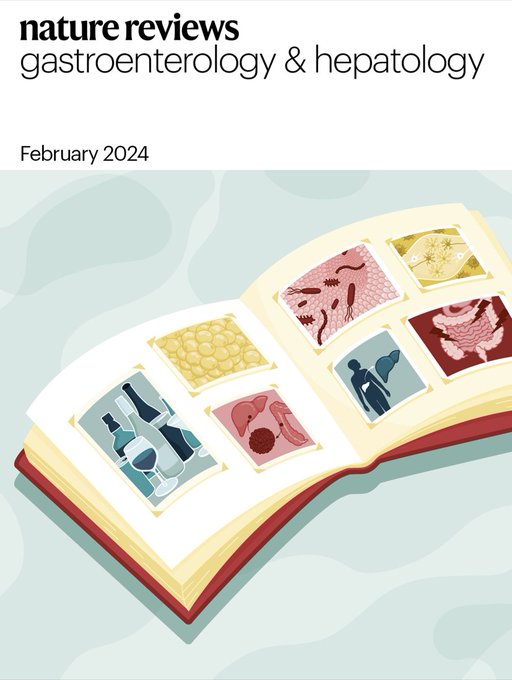Proteases in intestinal health and disease.
IF 51
1区 医学
Q1 GASTROENTEROLOGY & HEPATOLOGY
引用次数: 0
Abstract
Extracellular proteases, originating from the host or the microbiota, are key signalling molecules involved in cellular communication with the environment. They signal through a wide array of mechanisms, ranging from receptor activation to protein transformation and even degradation. Protease signals are irreversible, as it involves the cleavage of proteins. Therefore, proteases are tightly controlled, and must be understood within the context of the complex networks in which they operate - their activity is tightly regulated by access to specific substrates and the presence of inhibitors. The intestine is particularly exposed to extracellular proteases, which have major roles in gut physiology: digestion, food antigen processing, barrier function, epithelial renewal and microbiome homeostasis. Dysregulated proteolytic balance is associated with intestinal pathologies including inflammatory bowel disease, irritable bowel syndrome, coeliac disease and colorectal cancer. Extracellular proteases are major contributors to a number of gut dysfunctions, including microbiota dysbiosis, barrier dysfunction, matrix remodelling, activation of mucosal immunity and nociceptive or motility abnormalities. Consequently, proteolytic homeostasis at the intestinal mucosa surface has become a goal for intestinal health, and new therapeutic options targeting the interplay among proteases, their inhibitors and their substrates have been explored.肠道健康和疾病中的蛋白酶。
细胞外蛋白酶起源于宿主或微生物群,是参与细胞与环境通信的关键信号分子。它们通过一系列广泛的机制发出信号,从受体激活到蛋白质转化甚至降解。蛋白酶信号是不可逆的,因为它涉及蛋白质的切割。因此,蛋白酶受到严格控制,必须在其运作的复杂网络的背景下理解-它们的活性受到特定底物和抑制剂的存在的严格调节。肠道特别容易受到细胞外蛋白酶的影响,这些蛋白酶在肠道生理学中起着重要作用:消化、食物抗原加工、屏障功能、上皮更新和微生物组稳态。蛋白水解平衡失调与肠道疾病有关,包括炎症性肠病、肠易激综合征、乳糜泻和结直肠癌。细胞外蛋白酶是许多肠道功能失调的主要原因,包括微生物群失调、屏障功能障碍、基质重塑、粘膜免疫激活和伤害性或运动性异常。因此,肠粘膜表面的蛋白水解稳态已成为肠道健康的目标,针对蛋白酶及其抑制剂和底物之间相互作用的新治疗选择已被探索。
本文章由计算机程序翻译,如有差异,请以英文原文为准。
求助全文
约1分钟内获得全文
求助全文
来源期刊
CiteScore
52.30
自引率
0.60%
发文量
147
审稿时长
6-12 weeks
期刊介绍:
Nature Reviews Gastroenterology & Hepatology aims to serve as the leading resource for Reviews and commentaries within the scientific and medical communities it caters to. The journal strives to maintain authority, accessibility, and clarity in its published articles, which are complemented by easily understandable figures, tables, and other display items. Dedicated to providing exceptional service to authors, referees, and readers, the editorial team works diligently to maximize the usefulness and impact of each publication.
The journal encompasses a wide range of content types, including Research Highlights, News & Views, Comments, Reviews, Perspectives, and Consensus Statements, all pertinent to gastroenterologists and hepatologists. With its broad scope, Nature Reviews Gastroenterology & Hepatology ensures that its articles reach a diverse audience, aiming for the widest possible dissemination of valuable information.
Nature Reviews Gastroenterology & Hepatology is part of the Nature Reviews portfolio of journals.

 求助内容:
求助内容: 应助结果提醒方式:
应助结果提醒方式:


